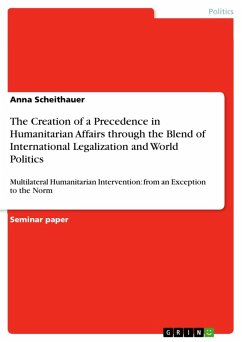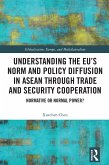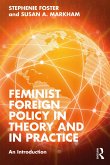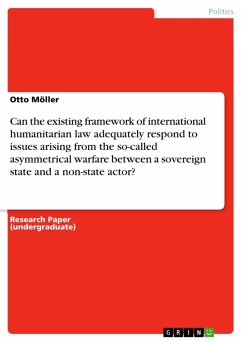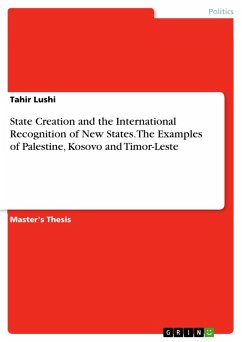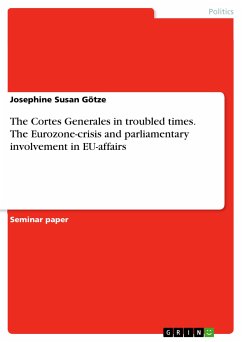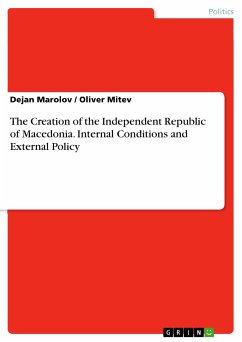Seminar paper from the year 2012 in the subject Politics - Topic: Peace and Conflict, Security, grade: A (American System), University of Illinois at Urbana-Champaign, language: English, abstract: The research paper sets out to explore the motivations behind Security Council Resolution (SCR) 688 on the internal civilian situation in Iraq after the Gulf War in 1991 embodying the jump-start for the implementation of the today well-known concept of multilateral humanitarian interventions with the international community intervening in a states' domestic affairs on humanitarian grounds. Thereby, the puzzle surrounding the document evolves around the question of its content's legitimacy with view to international law and political implications, figuring a rather grey area which, however, had a tremendous impact on future actions, commitments and reasoning applied by the international community. Thus, the central questions the paper addresses in this regard relate to the debate on the impact of norms as a lock-in mechanism in international treaty law reflecting on how and why at exactly this point in time a new principle respectively doctrine was born. For this purpose the examination of the intertwining of systemic changes in the world system with the international community's moral convictions, political inferences and the forms of legalization chosen will shed a light on the origination, the content and impacts of SCR 688 supporting the creation of a new world order. Thereby, special emphasis has been put on the political reasoning in the Security Council of the United Nations as well as on the three dimensions of legalization: precision, obligation and delegation. The findings have drawn attention to how SCR 688 served as a precedence for all multilateral humanitarian interventions leading to a change in the conception of state sovereignty and the raise of a moral conviction of a "Responsibility to Protect" (R2P) by the international community producing long-term effects in international relations. Altogether, the paper has shed light on the complexity of issues at hand leading to a change in conceptual thinking and with it to the ignition of a revolutionary spark for an exception to the rules to becoming a normative principle. At the same time, it has shown that generalizations within the realm of normative changes cannot be inferred from this unique example drawing rather to the aspect of a "ripe moment" in world affairs, with the exception of the blend of world politics and international legalization which seems a plausible set of factors underlying any transformative undertakings embodying the basis for the creation and progression of IL.
Dieser Download kann aus rechtlichen Gründen nur mit Rechnungsadresse in A, B, BG, CY, CZ, D, DK, EW, E, FIN, F, GR, HR, H, IRL, I, LT, L, LR, M, NL, PL, P, R, S, SLO, SK ausgeliefert werden.

